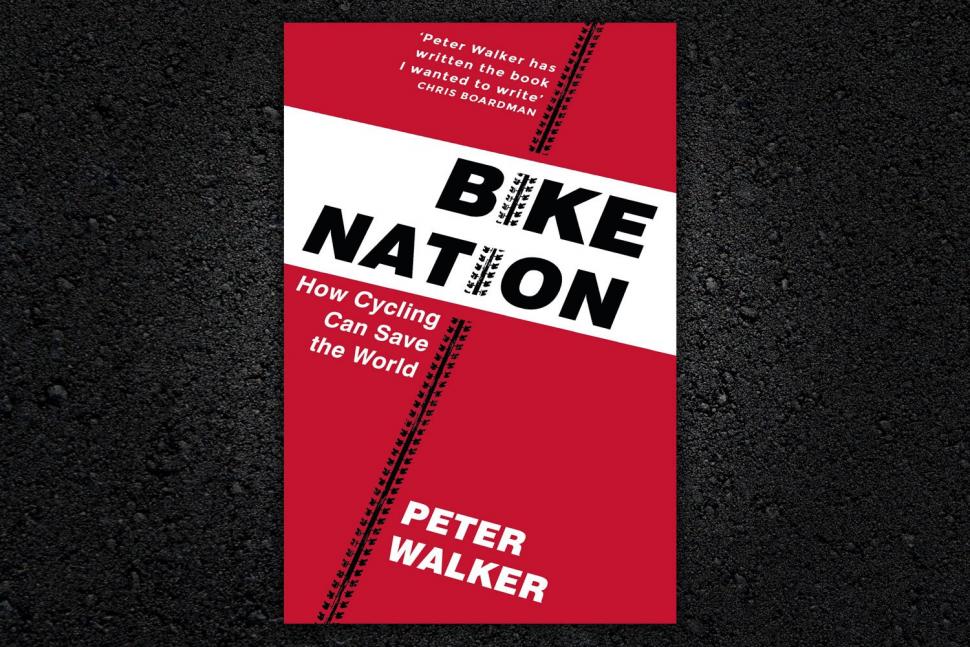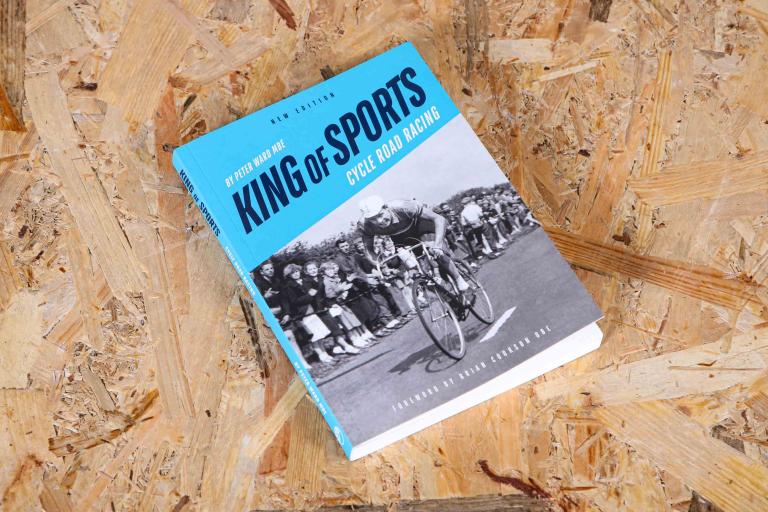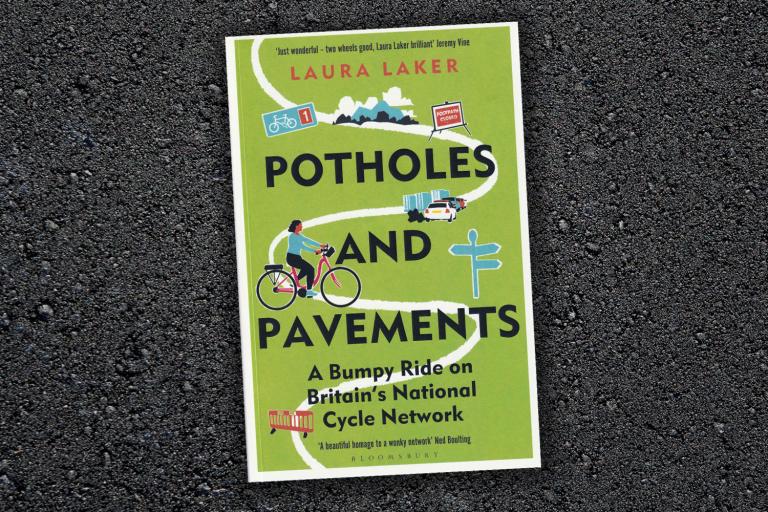- News
- Reviews
- Bikes
- Accessories
- Accessories - misc
- Computer mounts
- Bags
- Bar ends
- Bike bags & cases
- Bottle cages
- Bottles
- Cameras
- Car racks
- Child seats
- Computers
- Glasses
- GPS units
- Helmets
- Lights - front
- Lights - rear
- Lights - sets
- Locks
- Mirrors
- Mudguards
- Racks
- Pumps & CO2 inflators
- Puncture kits
- Reflectives
- Smart watches
- Stands and racks
- Trailers
- Clothing
- Components
- Bar tape & grips
- Bottom brackets
- Brake & gear cables
- Brake & STI levers
- Brake pads & spares
- Brakes
- Cassettes & freewheels
- Chains
- Chainsets & chainrings
- Derailleurs - front
- Derailleurs - rear
- Forks
- Gear levers & shifters
- Groupsets
- Handlebars & extensions
- Headsets
- Hubs
- Inner tubes
- Pedals
- Quick releases & skewers
- Saddles
- Seatposts
- Stems
- Wheels
- Tyres
- Health, fitness and nutrition
- Tools and workshop
- Miscellaneous
- Cross country mountain bikes
- Tubeless valves
- Buyers Guides
- Features
- Forum
- Recommends
- Podcast
review
 BikeNation.jpg
BikeNation.jpg£12.99
VERDICT:
Excellent book that makes a strong case for how society benefits from an increase in everyday cycling
Weight:
344g
Contact:
At road.cc every product is thoroughly tested for as long as it takes to get a proper insight into how well it works. Our reviewers are experienced cyclists that we trust to be objective. While we strive to ensure that opinions expressed are backed up by facts, reviews are by their nature an informed opinion, not a definitive verdict. We don't intentionally try to break anything (except locks) but we do try to look for weak points in any design. The overall score is not just an average of the other scores: it reflects both a product's function and value – with value determined by how a product compares with items of similar spec, quality, and price.
What the road.cc scores meanGood scores are more common than bad, because fortunately good products are more common than bad.
- Exceptional
- Excellent
- Very Good
- Good
- Quite good
- Average
- Not so good
- Poor
- Bad
- Appalling
Peter Walker may just have written the most convincing argument ever seen for 'how cycling can save the world', but I fear that he may also have wasted his time. Unless something unprecedented happens, the only people who are likely to read this book are those who already agree with the sentiment, but the people who need to be persuaded will probably never be aware that it exists.
It is doubly frustrating when the case presented for us becoming a 'Bike Nation' is so comprehensive, clear, and compelling: 'the book is ultimately about everyday riders [dressed in ordinary clothes], and the astonishing and varied ways in which they can transform the urban environment and way of life for the better'.
Buy Bike Nation — How Cycling Can Save the World by Peter Walker
Chris Boardman has contributed to many books, but nearly all relate to his previous careers; in his new capacity as a campaigner for cycling facilities and a supporter of utility cycling, he states that 'Peter Walker has written the book that I wanted to write' – which is a more valuable endorsement than anything that I can say.
Like many of you, I use both bikes and cars, and like to think that in the right circumstances there is a place for both; unfortunately most of the interactions or debates between the two groups (such as those often reported on this website) seem to involve people who have no appreciation for the other party's position. This may be through a simple lack of understanding '' or possibly because some people always behave like twats, regardless of what they are doing.
While you rarely get the chance to put your point of view across in such situations, if you did want to rehearse what you wished you had said at the time, this book will be a godsend. Walker provides invaluable information on every discussion that you are likely to encounter when making the case for cycling, and from the chapter headings you can tell that he gets right to the point: examples include 'The miracle pill: bikes make everyone more healthy', 'Fear and near misses: the battle to feel safe on the roads', 'Why cyclists are hated', and 'If helmets are the answer, you're asking the wrong question'.
That last one questions the idea of making helmets use compulsory, 'or even to overly encourage them as a supposed safety panacea' – and is likely to be the most contentious, even (or should that be especially?) among those who have not read it.
This book should be sufficient to convince rational people that we would all benefit from a society that is less centred on motor vehicles and more open to the benefits of cycling, and it gives useful examples of how things have been made to work better. The Dutch experience is normally quoted at this point, but it is reassuring to hear about the many other success stories.
As part of his research Walker travelled across the world, and reports on an episode of the Australian television programme Family Feuds, which 'pitches two teams of families against each other to guess the most common answer to largely inconsequential questions put in advance to a panel of the public'. The question was 'What is something annoying that a cyclist might do?' The most frequent answer was 'Ride in your car lane'. What?
That sums up why things need to change, but also the size of the challenge. You and I are likely to agree with virtually everything that Walker advocates, but unfortunately there are plenty out there who don't – and probably never will.
Verdict
Excellent book that makes a strong case for how society benefits from an increase in everyday cycling
road.cc test report
Make and model: Bike Nation How Cycling Can Save the World by Peter Walker
Size tested: paperback
Tell us what the product is for, and who it's aimed at. What do the manufacturers say about it? How does that compare to your own feelings about it?
From Yellow Jersey Press:
A revolution on the roads is approaching. Is it time for drivers to Give Way? Guardian news correspondent, Peter Walker, takes us on a journey around the world, exploring the varying attitudes to cycling on our highways.
Visit the shining examples of Amsterdam and Copenhagen, where cycling culture is an intrinsic part of the approach of politicians and officials. How have these cities made provision for cyclists and what are the extraordinary benefits?
And then take to the less welcoming roads of Britain, USA and Australia, where cycling can still be a terrifying experience. What are the tragic mistakes being made when planning and developing cities, and how do these mistakes lead to aggression towards the cycling community?
Millions of us find ourselves frustrated by the motor mentality and fighting for our rights to ride. This brilliant, shocking investigation will prepare you with all you need to know to confidently claim your place on the road.
Tell us some more about the technical aspects of the product?
Title: Bike Nation
Author: Peter Walker
Publisher: Yellow Jersey Press
Date: 6/4/17
Format: Paperback
Pages: 255
ISBN: 9781911214946
Price: £12.99
Read more at https://www.penguin.co.uk/books/1113912/bike-nation/#z052EgxX6x7eTDmP.99
Tell us what you particularly liked about the product
It comes across as a sensible and level-headed campaign, and not from the lunatic fringe.
Did you enjoy using the product? Yes
Would you consider buying the product? Yes
Would you recommend the product to a friend? Yes
Use this box to explain your score
Anyone who supports the arguments will love this book, and that is how I have scored it; those who would never agree with the proposals will want a much lower score - but they won't read it anyway.
About the tester
Age: 55
I usually ride: My best bike is:
I've been riding for: Over 20 years I ride: Every day I would class myself as: Expert
I regularly do the following types of riding: commuting, touring, club rides, sportives, general fitness riding,
Latest Comments
- Joe Totale 8 min 19 sec ago
This is all conjecture but I guess that a more conventional wheel would not have just disintegrated like this one did and although would have been...
- KDee 19 min 3 sec ago
Sure that's not the non-AXS model? Even in the EU, this model has a list price of 4900 euros.
- brooksby 34 min 24 sec ago
Seconded. If someone is riding an electric motorbike or a petrol moped thing at speed and wearing a balaclava or similar which obscures their face...
- eburtthebike 41 min 53 sec ago
eburt is out of the office. It's sunny here.
- Kendalred 42 min 3 sec ago
"Another cycle lane in Poole made national headlines after upset locals complained to the Daily Mail, Telegraph, and GB News" Nuff said...
- webbierwrex 52 min 58 sec ago
He has a great youtube channel with "shorts" detailing where he is at. Also shows the testing he has put in to the higher is more aero side of...
- chrisonabike 1 hour 6 min ago
Surely you'd do as well with a carbon-fibre sofa and some balloons (I bet this think isn't great in a gale either)? Or - if the goal is to get...
- spen 2 hours 14 min ago
In December last year Charlie Baker the head of the NCAA was giving evidence. It went like this ...
- Hirsute 3 hours 40 min ago
I think the driver would have accelerated more with the same result.
- levestane 4 hours 18 min ago
I wonder what the same view will look like in 2035?




Add new comment
1 comments
Peter Walker is political correspondent at the Guardian but also often writes for them, with great clarity and good sense, on cycling. Always worth reading his columns whatever anyone thinks about the rest of the paper's content.